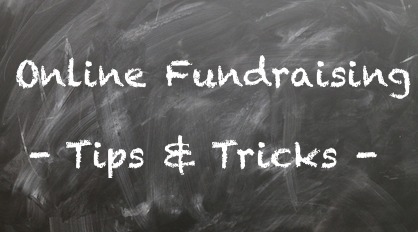Do you have a musical project you’re really passionate about? Are you ready to level up your music career and take your act even further?
The first thing you’ll need is money. There are a lot of major expenses associated with getting started in the music world, and your day job may not cover all of them.
The good news is that in the online age, there are more opportunities than ever for independent artists to get funding for music, ranging from traditional album sales to crowdfunding and arts grants.
Kickstarter is one rewards based crowdfunding site. Indiegogo is another. Here’s a comparison between the two that you might find helpful.
So, how can you manage your band fund to get your music career off the ground?
Here are eight creative ways to fund your music.
Making a Budget
Good financial planning rarely involves throwing money around randomly and hoping no new expenses crop up. It usually requires a lot more planning and organization.
If you want to get funds for your music, you need to start with a budget. Your budget should consider how much money you have available, how much you need, and what you need it for.
Some expenses associated with music include:
- Equipment costs
- Venue costs
- Travel and transportation for tours
- Hired musicians and other laborers
- Production costs for albums
- Production costs for videos
- Marketing and advertising
Which of these will apply to your project? Come up with an estimate of how much you can reasonably afford so that you have a goal in mind when you start fundraising.
Now, let’s get into some more essential money tips for indie musicians!
1. Album Sales and Streaming Revenue
Selling your music to fans is a surefire way to profit from your work, and fortunately, you don’t have to be signed to a major record label to do this.
Nowadays, most people consume music through streaming services like Spotify, many of which allow independent musicals to upload their work for free or through a distributor.
If you prefer a more traditional route, you can sell physical CDs or records by setting up an e-commerce store.

I’ve put together a new FREE course that’s packed with music crowdfunding tricks, resources, strategies, and killer marketing methods to help you get funders quickly.
You should check it out if you want to get more funding and you want to fast-track the entire process.
2. Crowdfunding
It’s important to note that most musicians only make a few cents from each online stream, so selling music alone might not generate enough revenue to cover all your expenses.
Crowdfunding is one proven method of getting help with music costs.
By setting up a crowdfunding page on an online platform, you give your fans a chance to support you by donating to your project.
But crowdfunding campaigns don’t produce results automatically. If you want to meet your funding goals, you need a strategy to guide you.
CrowdCrux has a new FREE course that’s packed with music crowdfunding tricks, resources, strategies, and killer marketing techniques!
You should check it out if you want to get more funding and fast-track the entire process.
Now, let’s get into some of the platforms you can use to host your campaign.
Rewards-Based Crowdfunding
Sites like Kickstarter and Indiegogo have sizeable categories for musicians and artists.
They use a rewards-based model to help creators get funding for individual projects, such as albums, tours, or videos. Through these platforms, backers can pledge cash in exchange for rewards, which might take the form of tickets, albums, or other merch.
GoFundMe is another great rewards-based platform for nonprofit causes and personal causes, and creative projects and careers often fall into those categories. Unlike Kickstarter and Indiegogo, GoFundMe does not require you to offer rewards.
Subscription-Based Crowdfunding
What if you want to raise money for more than just one project? What if you want to use crowdfunding to help finance your whole career?
That’s where subscription-based crowdfunding through sites like Patreon comes in.
Patreon was founded by musician Jack Conte (one of the geniuses behind the indie duo Pomplamoose) to help independent creators get funding from the crowd on a regular basis.
Through Patreon and other subscription-based crowdfunding platforms, subscribers pay a recurring fee to get access to exclusive content from their favorite bands and musicians. Rewards you can offer your subscribers include early releases, outtakes, merchandise, or Patreon-only songs and videos.
Musicians Only
There are a few sites that are specifically dedicated to helping musicians get funding, and in addition to hosting crowdfunding campaigns, they also offer access to tight-knit communities of passionate creators and prevent you from having to compete with larger categories like tech and gaming.
ArtistsShare pioneered the world of music crowdfunding in 2003 with a site by musicians and for musicians. Over the years, multiple ArtistShare projects have received Grammy awards.
And if you’re looking for a platform that can do it all, Rocket Fuel is a musicians-only site that facilitates e-commerce sales, rewards-based crowdfunding, AND subscription-based crowdfunding.
3. Ticket Sales
Chances are, your fans really want to see your band perform live, and they’re probably willing to pay for it!
Supplement your revenue by selling tickets to shows and joining festival line-ups.
You don’t have to book a world tour just yet. If you’re on a low budget or you’re still building up your fanbase, a few shows at local venues can make a big difference.
You can also add a fundraising show to your gigging schedule. These types of shows are explicitly held to raise money for an upcoming project. If you let fans know that revenue from ticket sales will help you put out more music, they might jump at the chance to contribute!
I’ve put together a new FREE course that’s packed with music crowdfunding tricks, resources, strategies, and killer marketing methods to help you get funders quickly.
You should check it out if you want to get more funding and you want to fast-track the entire process.
4. Merch
Fans love to rep their favorite artists on t-shirts, posters, stickers, buttons, and more. This is another opportunity for you to get funding for your music!
Set up an e-commerce store to sell custom merch. You can also sell in person at shows and festivals.
As an added bonus, merch can function as an easy way to reach new fans in your scene. If people see your band’s name on a t-shirt with a cool design, they may be inclined to look you up.
5. Busking
When it comes to DIY music funding, this is a timeless classic but it gives musicians a chance to perform for money without having to book a paid venue and sell tickets.
Busking refers to the practice of street performance, and you’ve likely seen buskers playing music on street corners to entertain passers-by. In urban areas, many people are happy to give their loose change to talented musicians, and if you are fortunate enough to attract a big crowd, you can make some substantial cash.
Once you’ve scoped out an area to give your performance, be sure to check the local laws. Some cities may outlaw busking altogether and others may require you to obtain a license first.

6. Small Business Loans
If you and your band are trying to make money as part of an independent musical project, then you may qualify for a small business loan!
Small business loans are a pretty common way of getting funds for music, and they can have major benefits for bands, musicians, and record labels that are still in the growth phase.
In the United States, the Small Business Alliance allows entertainers to apply for loans of up to $250,000. You can use the money to cover the expenses for things like equipment, performance, tours, and more.
However, in order you qualify for a loan, you will have to demonstrate your ability to repay it, so be sure to have a strong business plan in place.
I’ve put together a new FREE course that’s packed with music crowdfunding tricks, resources, strategies, and killer marketing methods to help you get funders quickly.
You should check it out if you want to get more funding and you want to fast-track the entire process.
7. Arts Grants
Music is really important, and that’s why some organizations are willing to provide sums of money for musicians with impressive projects.
Grants are a huge source of cash for artists, and unlike loans, you don’t have to pay them back! They can be used to cover personal expenses as well as professional ones, and they give artists the freedom to pursue their work with fewer financial restraints.
It’s important to note, though, that arts grants are highly competitive, and most organizations only award them to a very small percentage of applicants, so you’ll need to have a backup plan in place, but it can’t hurt to send in a few applications!
Here are a few potential leads for US-based musicians:
- National Endowment for the Arts
- New Music USA
- Foundation for Contemporary Arts
- Mid-Atlantic Arts Foundation
- Chamber Music America
8. Sponsorships
Depending on how big your scene is, you might have some opportunities to form lucrative sponsorships.
If you’re looking to get funding for a tour or a major show, local businesses might be willing to pay money to have their names and logos appear on promotional materials, and you can use this money to scale up your performance.
Consider the demographic of your fanbase and what other products they are likely to buy. For example, if most of your fans are in their twenties, a vape shop or trendy restaurant could have a lot to gain from joining forces with you. Radio stations and music stores are other potential sponsors.
Put together a compelling pitch and reach out!
Conclusion
When it comes to getting funding for music or putting together a band fund, independent artists are a lot less limited in their options than they used to be.
You don’t have to rely on support from a major record label to have a successful music career. You can leverage any of these channels to move your projects forward and stay afloat as an artist.
Don’t forget to check out CrowdCrux’s FREE Music Crowdfunding course for access to training videos that will take tell you everything you need to know to ace your crowdfunding campaign and get finance your music.
Now get out there and give it a shot. All your fans are rooting for you!




